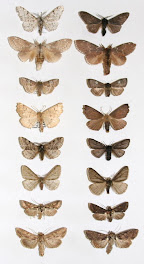"...these analyses offer a picture of evolution in action, as C. psychrerythraea uses subtle tweaks in common bacterial biology to adapt to its chilly environs. For instance, the bacterium taps a group of four to five genes to generate polyunsaturated fatty acids and pack those acids into cell membranes, resulting in membranes that are fluid and functional--rather than a frozen chunk of biomass--below the freezing point. The genome also possesses a number of duplicated genes important to cell membrane biosynthesis. What's more, C. psychrerythraea dresses in layers, generating plenty of extracellular polysaccharides (sugars) that coat cell membranes.
Aside from its cellular outerwear, C. psychrerythraea generates a range of potential cold-protective compounds. One example is a family of polyesters, known as polyhydroxyalkanoate (PHA) compounds, that may also boost reserves of nitrogen and carbon, which could be in short supply in the extreme cold. The organism also engineers cold-hardy versions of ordinary enzymes found in free-living bacteria, such as enzymes that break down organic matter. C. psychrerythraea possesses genes that may break down complex compounds, including pollutants, as well."
Lest you think this is just pure science, the analysis does have applications:
More than just marvels of nature, cold-adapted enzymes hold industrial promise, as active ingredients in coldwater detergents, clean-up for industrial contaminants, and food treatments. Psychrophiles could hold clues to microbial life on other planets, as well, such as the frozen surface of Mars or one of Jupiter's moons, Europa.
So evolutionary theory could lead to a better way of cleaning up industrial contamination...








